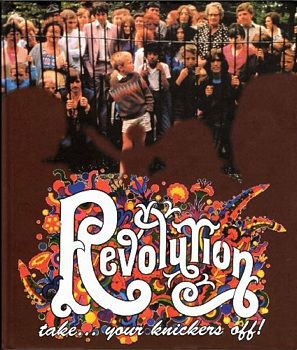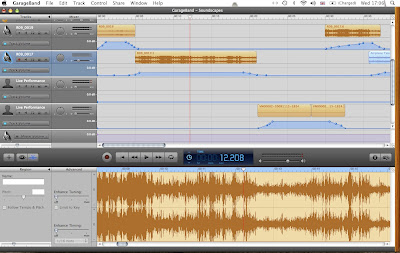The theme of our radio show is:
Why is music not as revolutionary today as it was in the past?

The assignment was for us to split up into teams and write, direct and produce a 5-minute radio show on a subject of our choice. Along with Mandy and Simon, we first had the idea to do a broader theme of how music affects culture, going through the last century of music movements, such as the jazz and blues era, rock and roll, punk and ending with dance/rave music. Through this we wanted to illustrate how music was instrumental in many of the cultural revolutions of the last century and had the power to shift mindsets and paradigms on a massive scale, as well as how, or if music could have the same effect on culture today.
However. We soon realised with Mike's help that the idea, although one that we all were interested in, was more of a series than a 5-minute radio segment and we decided it would be best to narrow down the field. As we were brainstorming we realised that the main idea we were wanting to put across was that music has caused entire culture revolutions in the past - why doesn't it seem to do so on the same scale today?
This is the discussion we want to put forward in our radio show, exploring different possibilities and raising questions as to what's changed. We thought of two main possible reasons that we decided to focus the show on; first, could it be because of technology and the possibility of instant access to any song of any sort of music rather than one genre of music defining a decade and entire generations as it has in the past; or the second, is it because the quality of music has deteriorated to the point where it's simply not as good, becoming too formulaic rather than new, revolutionary sounds packed with meaning?
The way we'll do this is by first establishing how music revolutionised culture in the past by giving examples such as The Beatles and their role in bringing about the hippie/free love revolution. We would then interview people in the music industry world, music students and professors and balance it with
vox pops of people on the street to get as many opinions as possible, as well as people who might have lived through and been part of a music revolution in the past. We would ask questions such as:
1. How do you think the advent of the digital age affects music production/consumerism today?
or
2. In your opinion, has the quality of music changed over the years? If so, how?
...and so on. We would also want to use sound bites of interviews that revolutionary music artists have done themselves and samples of songs that had enough influence to change the mindset of an entire generation, contrasting them with songs from today. We would want to end by leaving the question lingering in people's minds: Why isn't music as powerful in causing massive-scale revolutions today as it has proven to be in the past?





